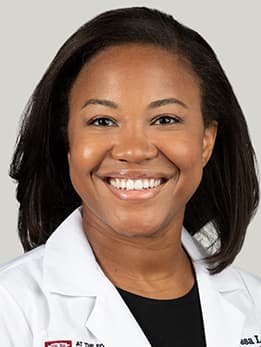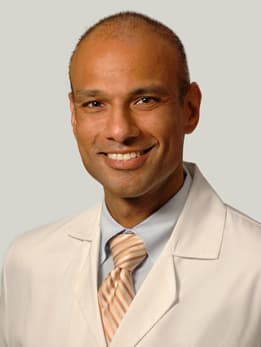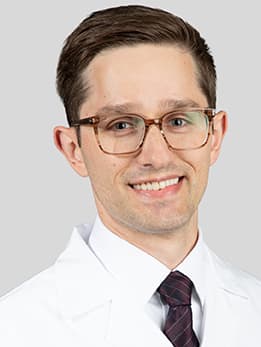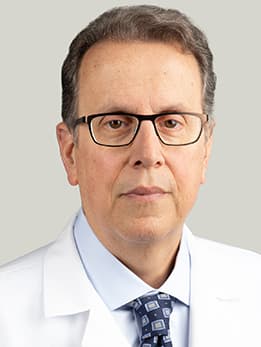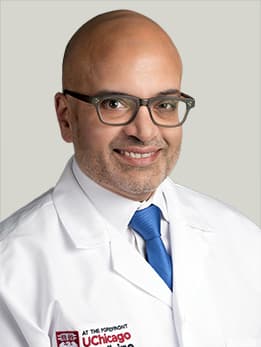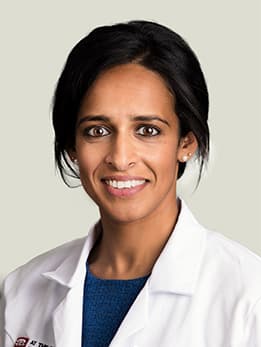Minimally Invasive Esophageal Surgery
The University of Chicago Medicine has many experts who specialize in minimally invasive surgery for esophageal disorders. Our surgeons take a team approach in the diagnosis and treatment of all esophageal disorders, and work closely with other experts in esophageal care and thoracic surgery as part of the Center for Esophageal Diseases.
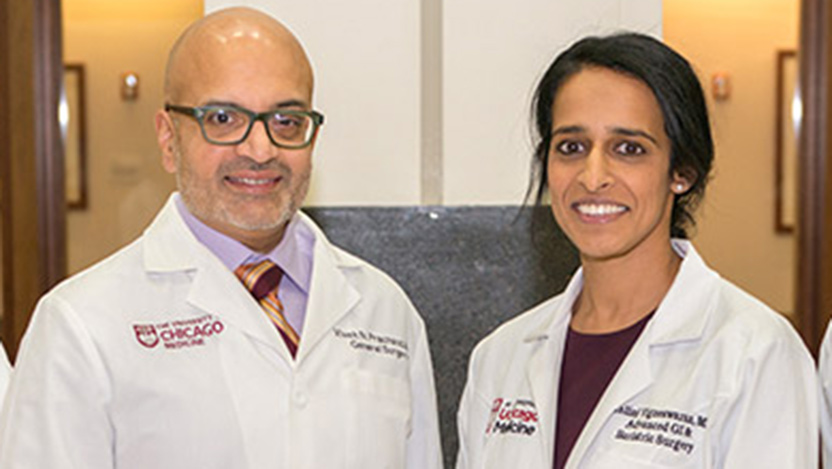
Esophageal Disorders Treated with Minimally Invasive Surgery
An esophagectomy is a procedure that removes the esophagus due to esophageal cancer or high-grade dysplasia. It is usually performed laparoscopically, thoracoscopically or using a combination of the two techniques. Surgeons at UChicago Medicine have been using this minimally invasive approach to treat esophageal cancer since 2006 and have the most expertise in the region. Patients undergoing this surgery are generally able to leave the hospital sooner and return to their normal activities more quickly than with traditional open surgery. Other benefits include less pain and scarring and a faster recovery.
Gastroesophageal reflux disease (GERD), often called acid reflux, is usually treated with dietary modifications and daily medications that suppress acid production by the stomach. Sometimes, lifestyle changes or medications do not lead to sustained improvement for some patients. Other patients require daily medication. Surgery can be a very effective treatment for both of these groups. Our surgeons perform anti-reflux procedures using laparoscopic techniques. Usually patients are discharged the day after surgery without antacid medications. In addition, our surgeons are often able to revise or repair unsuccessful anti-reflux procedures performed at other facilities using a minimally invasive approach.
Compared to traditional surgery, minimally invasive GERD surgery offers patients:
- Faster recovery (usually only one night in the hospital)
- Minimal scarring
- Significantly less pain because the incisions are so small
Learn more about gastroesophageal reflux disease surgery options
Certain types of very large hiatal hernias — known as paraesophageal hernias, in which the stomach slides into the chest — can interfere with eating and breathing and sometimes result in severe complications. This condition generally requires surgical repair and is usually treated using laparoscopy or, under special circumstances, may require opening up the chest through the rib cage.
Motility disorders affect the strength and coordination of esophageal muscle contractions. One particular disorder — achalasia — was treated in the past with endoscopic therapies that provided relief in about 75 percent of patients. With the laparoscopic techniques used at UChicago Medicine, it is possible to improve symptoms of achalasia in about 95 percent of patients. The procedure usually requires an overnight stay in the hospital.
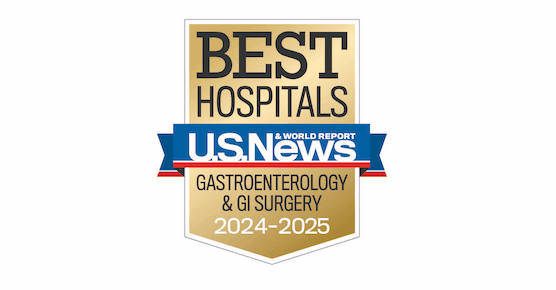
Nationally Ranked in Gastroenterology and GI Surgery
According to U.S. News & World Report's 2024-25 Rankings.
Learn more about U.S. News Best HospitalsOur Minimally Invasive Esophageal Surgery Team
Related Services
Anti-Reflux Surgery: A Patient Success Story
Musician Michael Meadows came to UChicago Medicine to treat his acid reflux. Dr. Yalini Vigneswaran came up with a plan to treat more than just his acid reflux so he could return to the stage.
So apparently I was having extensive hyper acid reflux. And I was going to doctors where I live, which is in Indiana. And they were wanting to cut my neck and do all this crazy stuff. And it just didn't seem right.
He was sent to me for a Nissen fundoplication, which is, like I said, one of the gold standard reflux operations we have surgeons perform. When he came to see me, I discussed this procedure with him. But looking at his whole picture and his whole health, he also had a history of diabetes, with his weight and his other medical problems such as high blood pressure. I talked to him that I could help him with his reflux and his other medical problems with a gastric bypass, which he was actually very pleasantly surprised to know that we could treat his reflux as well.
She drew me a picture. And she showed me everything and explained everything so thoroughly in a very short amount of time that I actually understood. And it made sense. Very quickly decided that that was going to be the way to go.
The care was amazing. But everybody knew what they were doing. And it wasn't a guess. There was no, this is what it is and this is what we're going to do, until I came here. So I had a staff that everybody knew me. They knew everything about me. And this is the plan. So it made it, I felt, much more comfortable.
And so, two weeks after surgery, I was back on stage. I was so nervous. Nobody knew what to think. We hadn't rehearsed in weeks because of the surgery. And then, that first line of the first song came out, and I was like, hey, it's going to be OK. And by the third song, I was like, wow, this is good. So, yeah. I was very happy.
Eating Again After Achalasia


